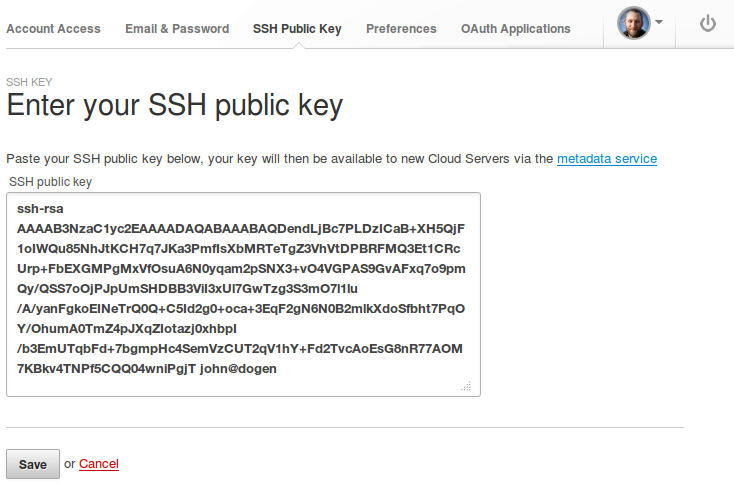
By accessing and using this computer, youĪcknowledge and consent to such monitoring and information retrieval.īy accessing and using this computer, you also agree to comply withĪll of Sample Company's policies and standards. The old public key has to be removed from all systems, a new key has to be generated with ssh-keygen, and the new public key has to be transferred to the desired remote systems. Should have no expectation that any such information, messages or This system is considered to be the sole property of Sample CorporationĪnd can and may be monitored, reviewed, and retained at any time. Hardware created, stored, accessed, received, or used by you through || exit 1" ssh computer system is the property of Sample Corporation and is toīe used for business purposes. On the remote system, edit /. touch /.ssh/authorizedkeys chmod 600 /.ssh/authorizedkeys this is important. On the remote server, do this: mkdir /.ssh/ chmod 700 /.ssh this is important. Your identification has been saved in /c/Users/user//.ssh/id_rsa. This is your public key that needs to be added to /.ssh/authorizedkeys on the remote server. This facilitates automated, passwordless logins and single sign-on using the SSH protocol.
#Ssh copy key password
Its purpose is to provide access without requiring a password for each login. STEP-1: Generate RSA Key Pair C:\Users\user>ssh-keygenĮnter file in which to save the key (/c/Users/user//.ssh/id_rsa):Įnter passphrase (empty for no passphrase): ssh-copy-id installs an SSH key on a server as an authorized key. This should list the content of /tmp without asking for the password. Should become ssh-rsa AAAAB3NzaC1yc2EAAAABIwAAAQEAnvYlVooXGoj3+7huZBUqf4wj57r25SHCKiiShyla335flX7Rsmb4meExpdh2NzfzffG15xl1wo0xBZ3HdZdqF2GUniEcNbtVjS1FKzQwPfsYPHMCY58qT0U2ZgK1zsXj2o0D2RWrCv3DFFfwUgNyZRYN2HK32umY6OmGSOVuJvIKhT+X6YaCVyax3CHv2ByB2OTBl9mh4nrwYAVXToT+X2psBE+MKB5R85lrUGkl3GtymTk10Dvf5O80exdTLFRMvkCA5RAIZgvxMk/bbNaH/0UHQoctX9oaDeKGWUPfVaknFBQdU9009+lK/ocAlKVNHEQkw+1wuV6dFoT1/hngSw= test it c:\>ssh "ls -al /tmp/"

Login to linux and open the file: vi ~/.ssh/authorized_keysįor example: - BEGIN SSH2 PUBLIC KEY -Ĭomment: "2048-bit RSA, END SSH2 PUBLIC KEY.
#Ssh copy key windows
The id_rsa.pub file on windows is multiline where linux expects it in in a single line so we have to correct it a bit.

ssh/authorized_keys || exit 1" > /tmp/t.txt" copy the file to the target linux system using the sshĬredits to for his answer c:\>ssh "umask 077 test -d. I changed the name of the public key to "id_rsa"Ģ. That created an identity file in the home directory. Now, you can ssh to your host as usual and you will be asked if you want to continue to this host. This will remove your key associated with the host. create identity (on windows) c:\>ssh-keygen delete the key that is associated with your host.


 0 kommentar(er)
0 kommentar(er)
